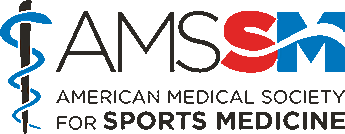|
COACH'S CORNER: COACHING AN ATHLETE THROUGH INJURY [Back] Athletes and coaches alike are heavily invested in sports in many aspects of their lives. Injuries can affect everyone; not only are they rarely expected, depending on age and experience they can also provoke stress responses in all details of well-being. Understanding these responses and why they occur can help facilitate fast recovery without lasting detriment and get athletes back to play. A large component of the injury recovery process requires those involved to step back and recognize the role of sport in the athlete’s life. 1. Sense of Identity: Athletes, especially by the high school and collegiate level, have invested significant time and energy into their athletic pursuits. It is an important part of who they are both on and off the field. 2. Self-esteem: In general, sport is something that provides a challenge and medium for continual improvement. Overcoming these obstacles is a source of great accomplishment and happiness – after all, it is a game. 3. Stress management: Multiple studies over the years have repeatedly shown that physical fitness is an excellent source of stress relief. For many, it is the primary outlet to deal with difficult social situations by providing opportunity for escape, whether it temporary (e.g. through a run) or more permanent (e.g. athletic scholarship). Injuries can create voids in an athlete’s life. Time, self-worth, teamwork – all of these become major questions as both practice and games are put on hold and potentially less-skilled players move up the depth chart in their absence. The expectation of return to play can be less anxious for those with prior injury but it is still important to anticipate the stressors involved. On the athlete side, allow yourself to be sad; you’ve invested an enormous amount of time and effort - acknowledging that is a large part of the healing. Accept the injury and don’t focus on the things that could have changed the situation surrounding it. Take the injury as a challenge by setting new goals for your recovery process. Most importantly, throughout the recovery, make sure that a positive attitude persists; negative feelings contribute nothing to the process and will only get in the way of your healing. To whatever extent possible, stay involved with the team and practice. Whether the work-out is mental or physical rehabilitation (as approved by your physical therapist) it will only serve to help keep your mind sharp and body ready. Don’t be afraid to accept, or even request, the help of your teammates and coaches. You are a large part of their lives and most would do anything they can to help. If the injury is career-ending, consider using the skills you’ve picked up in another field. Never be afraid to admit when your mind isn’t in the right place – sports counselors and psychologists exist to help players through all aspects of competition and a significant part of that is mental preparedness. Finally, be patient. Injuries take time to heal so don’t rush yourself back to service or you’ll risk a poor outcome. From the coaching standpoint, empathize with your player and allow them to share their emotions without encouraging unsafe return to play or self-pity. Reach out and help them understand that they still have value by building up their self-esteem – really let them know that you care about them as much more than a jersey. This can be accomplished by finding a new role on the team to keep them involved. In addition, this avoids the isolation in which some athletes find themselves when they cannot participate. When the time comes, under proper supervision, allow them to practice – whether it be mental or physical. Finally, if things become more permanent, embrace other places of personal strength and be quick to recognize signs of depression or thoughts of self-harm. AMSSM Member Authors References Category: [Back] |

